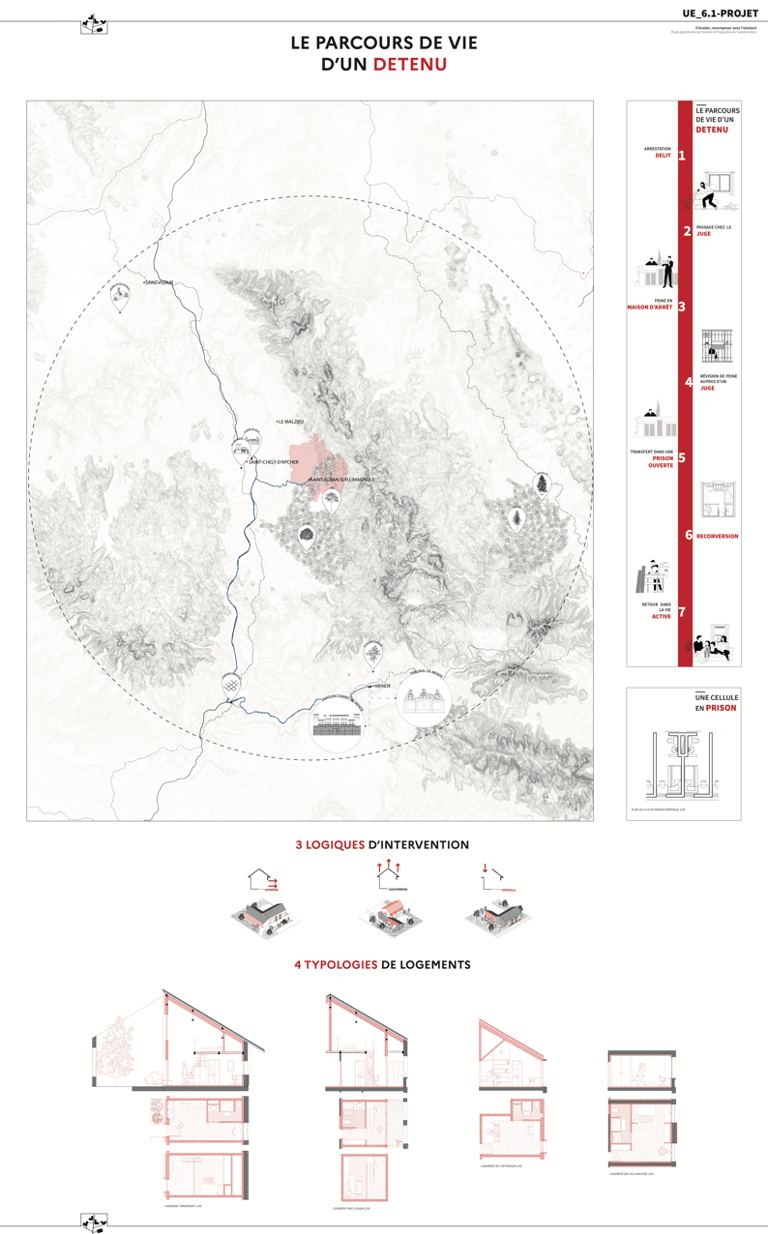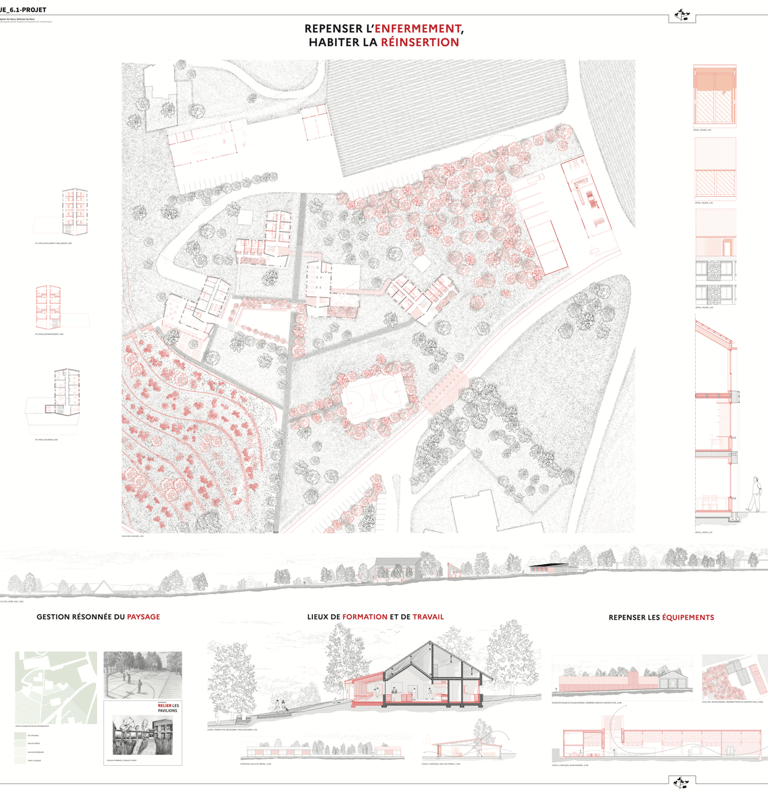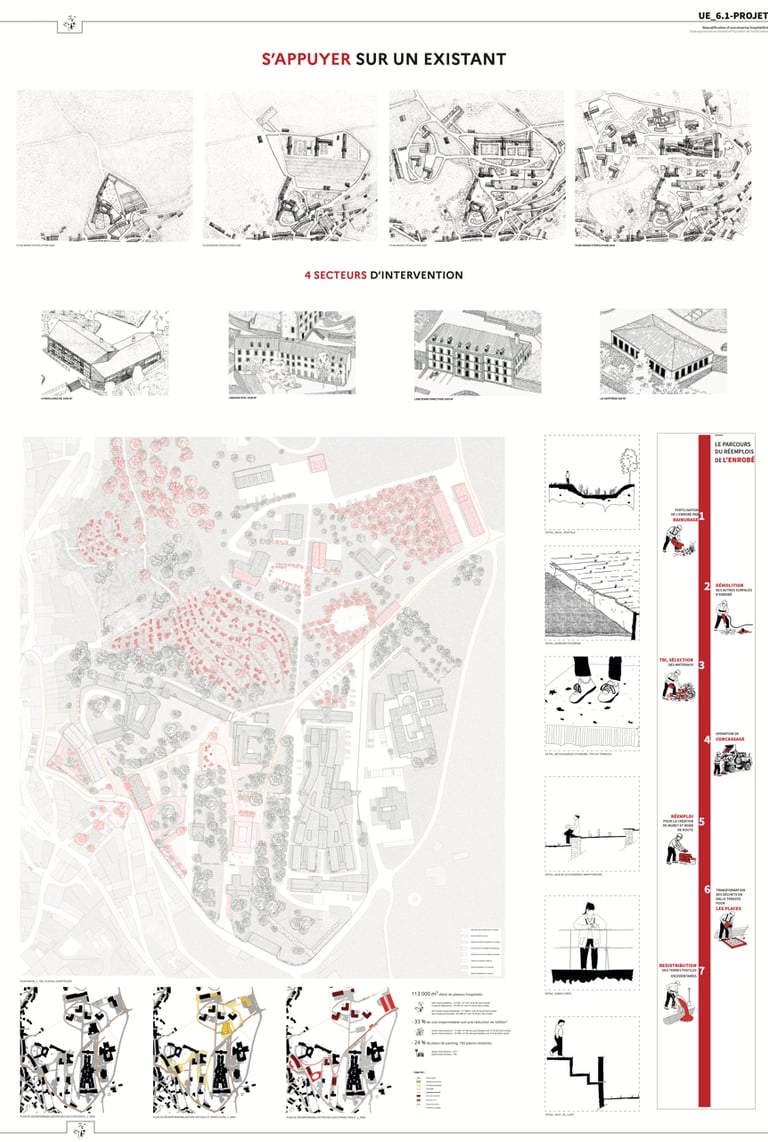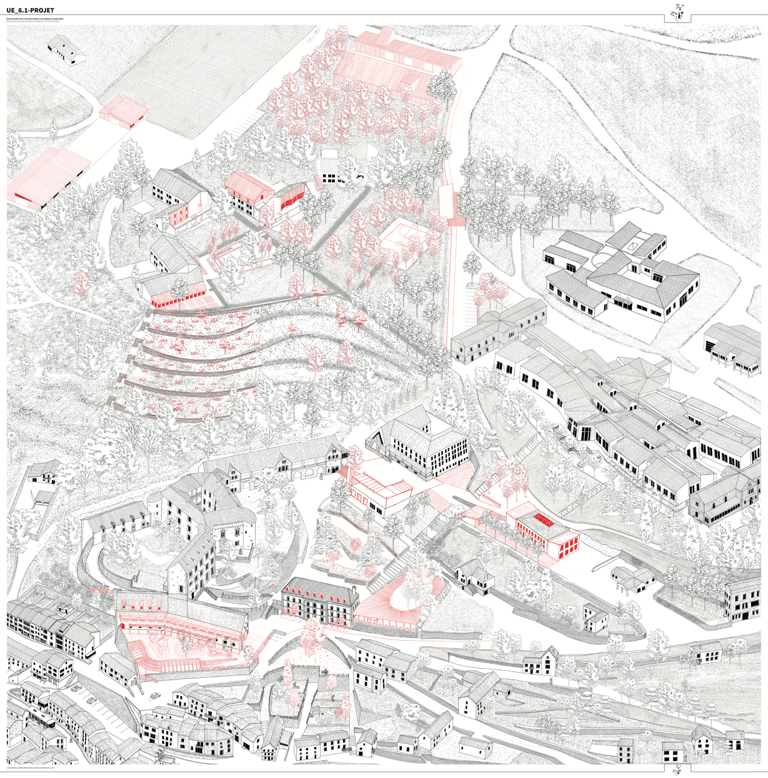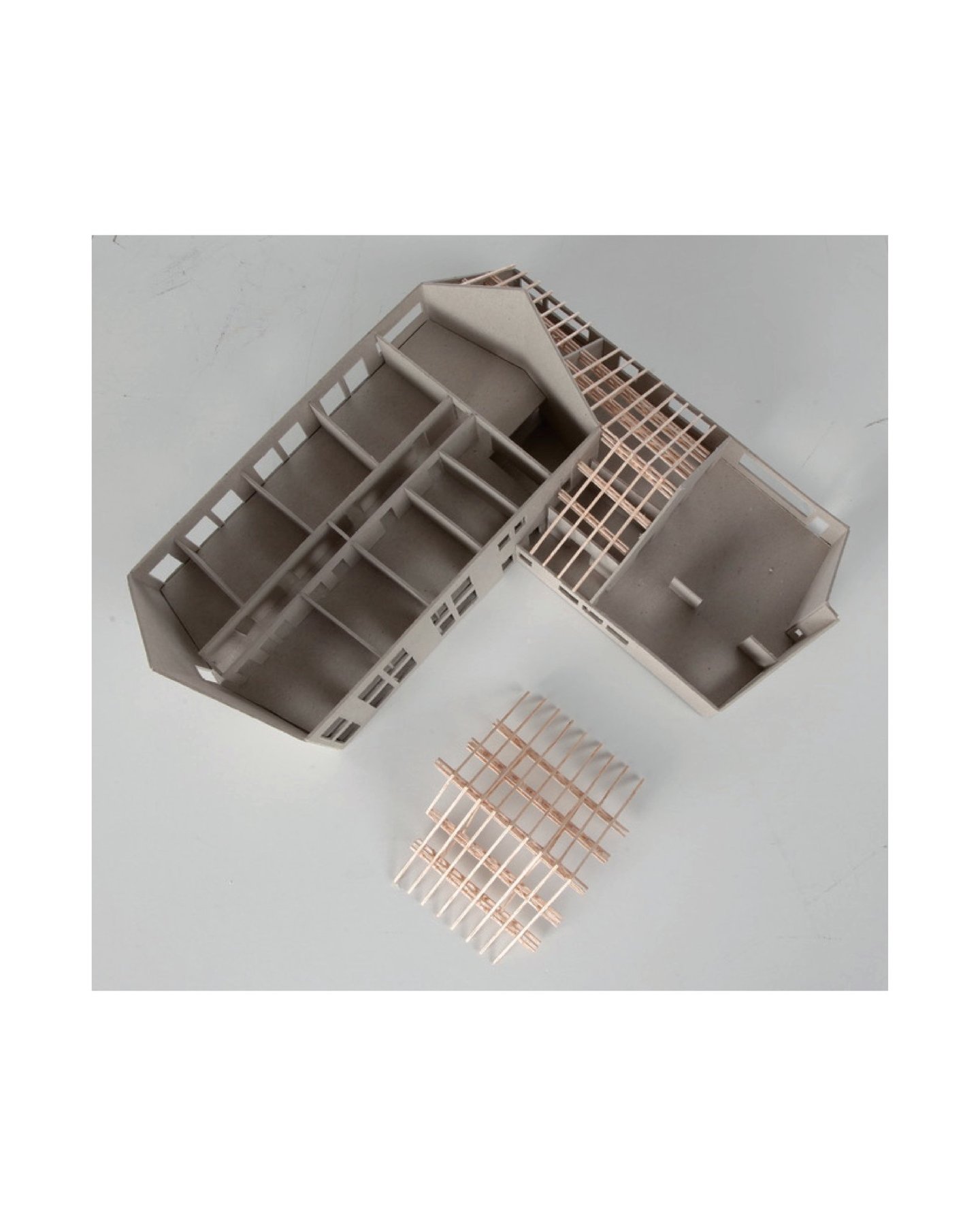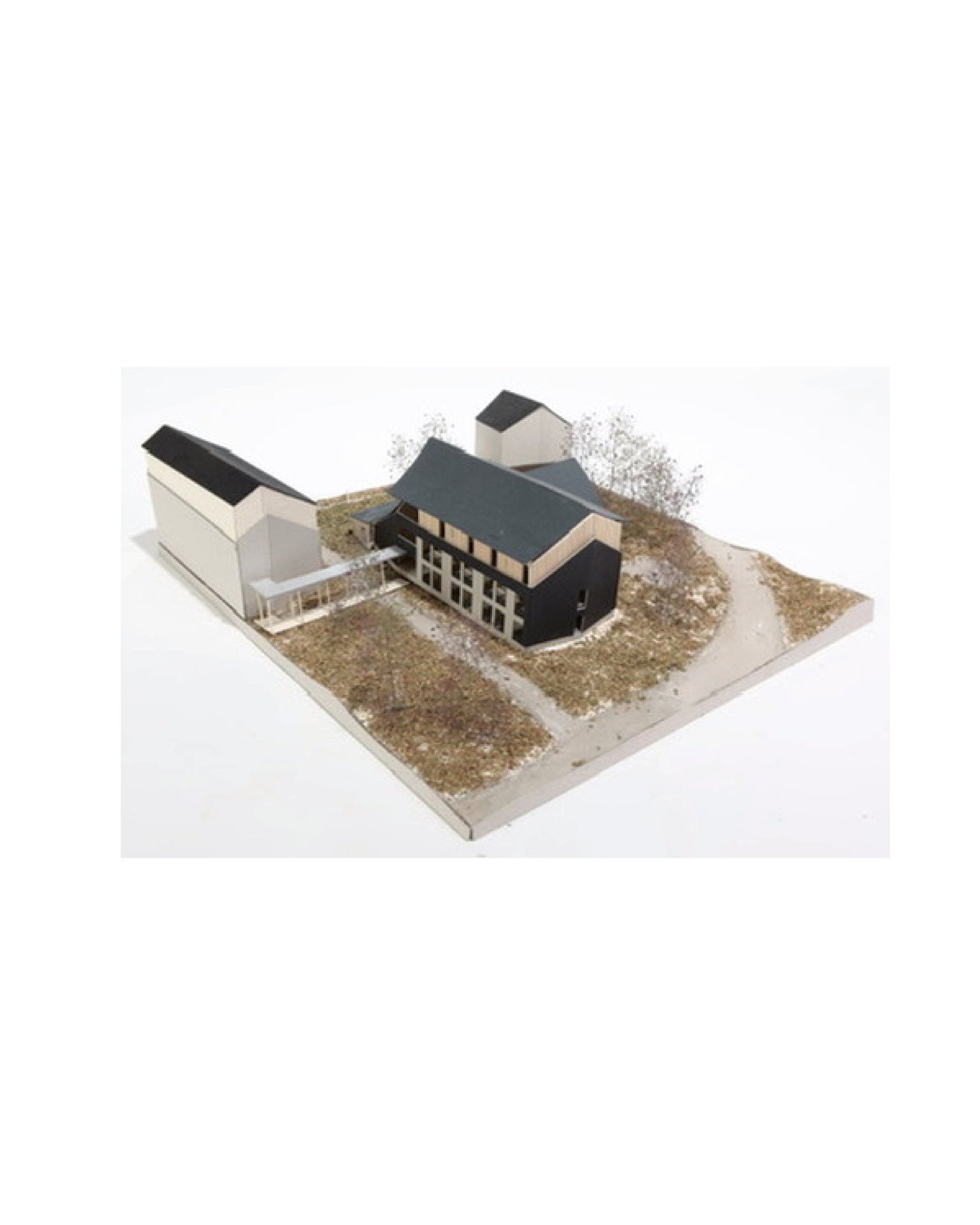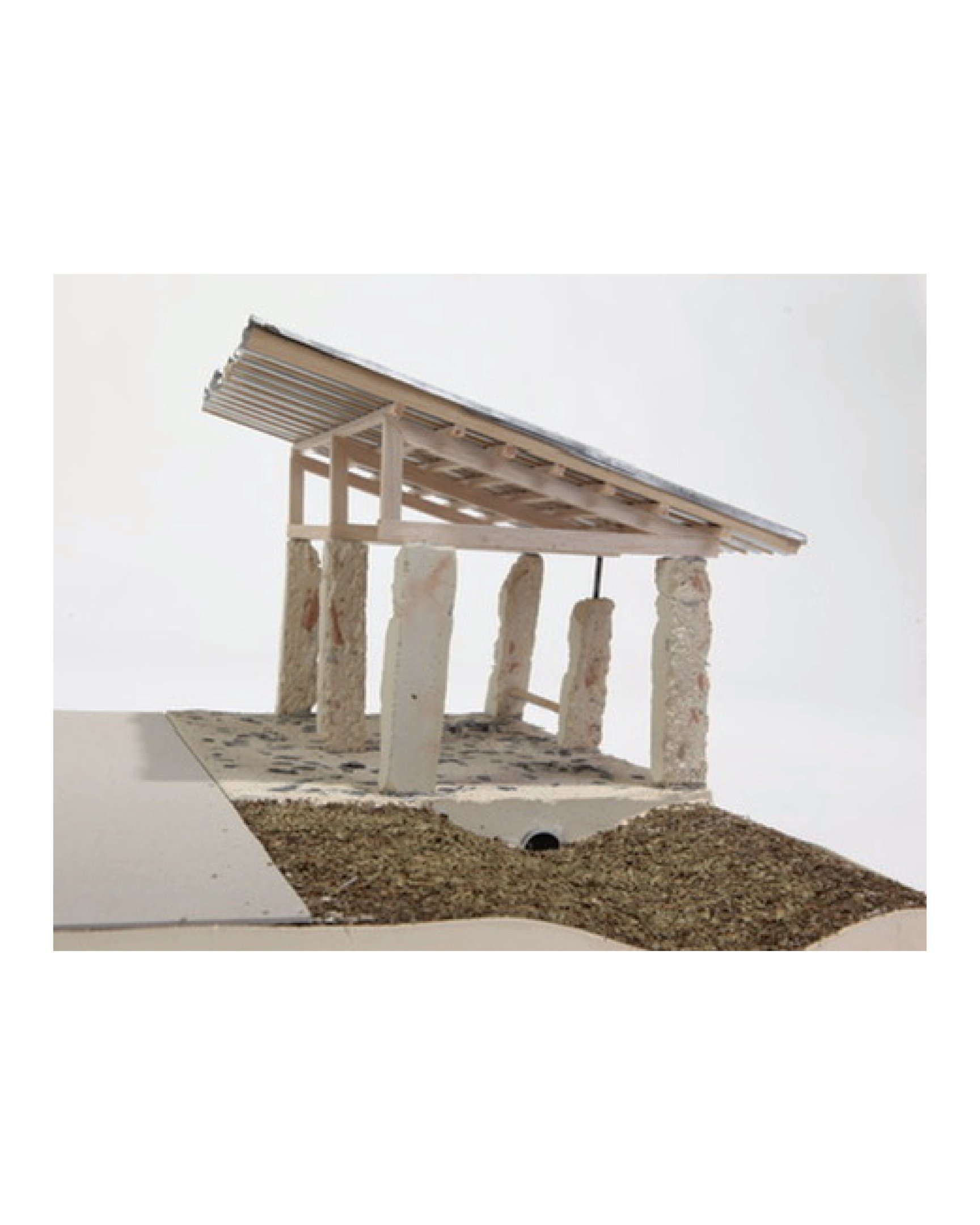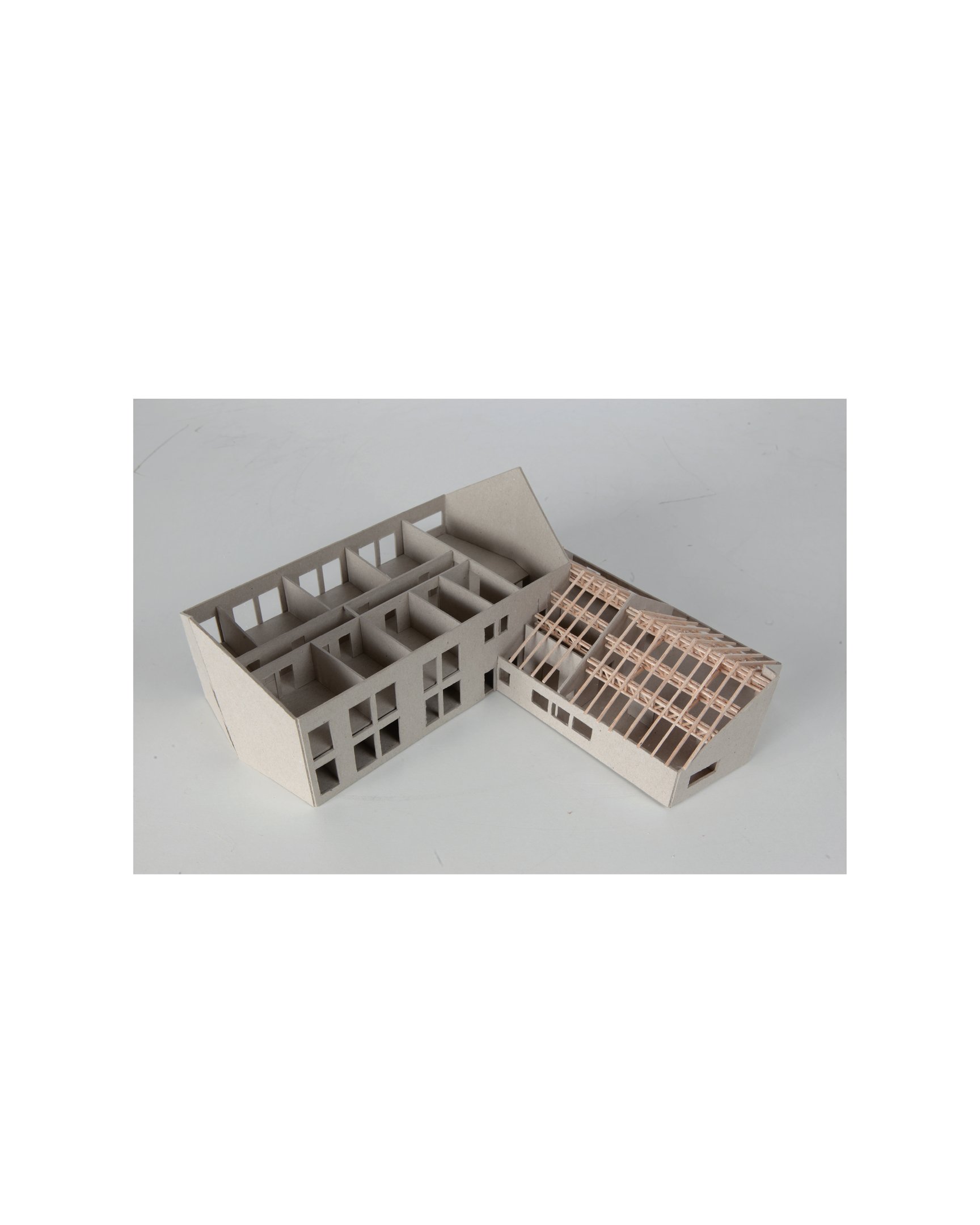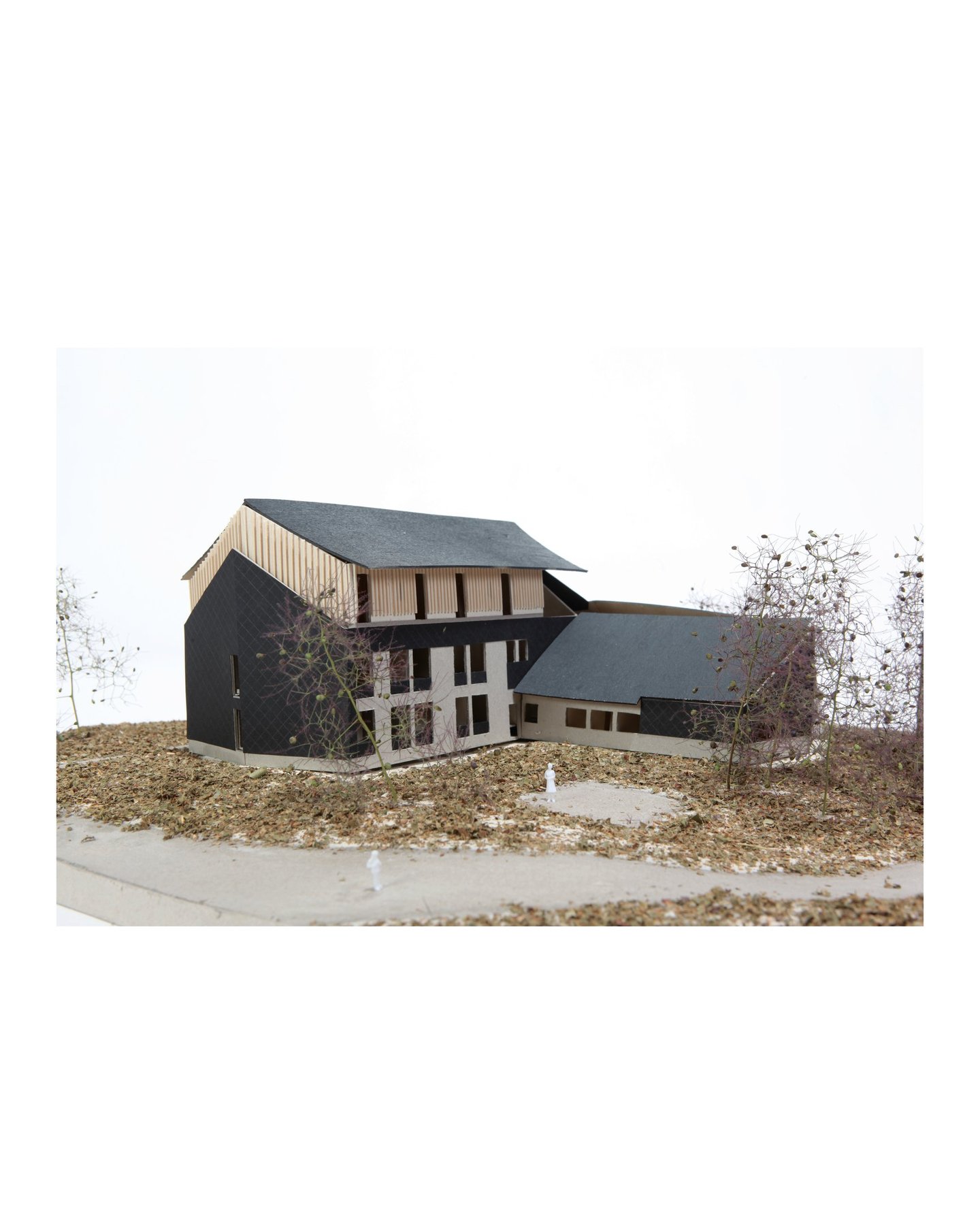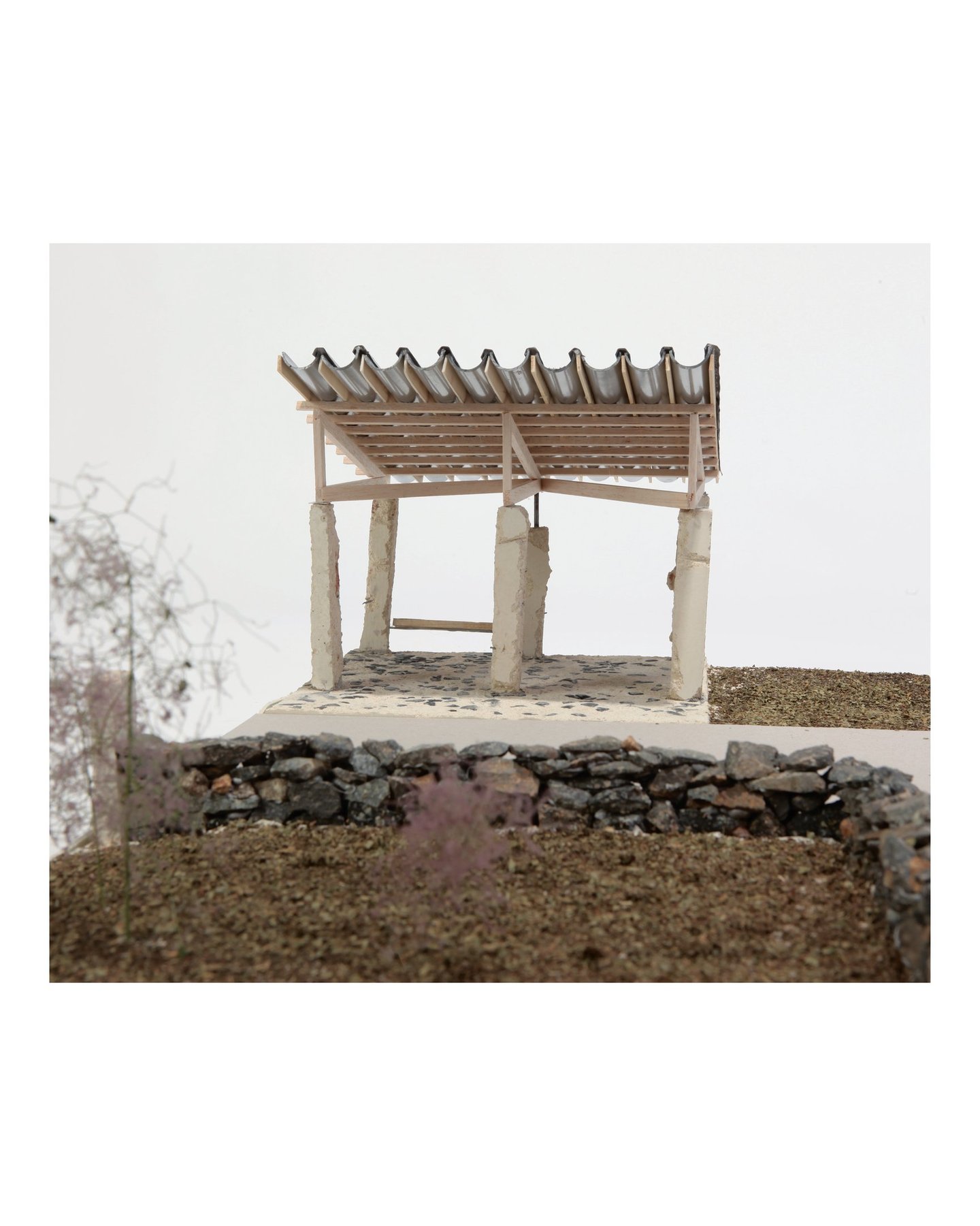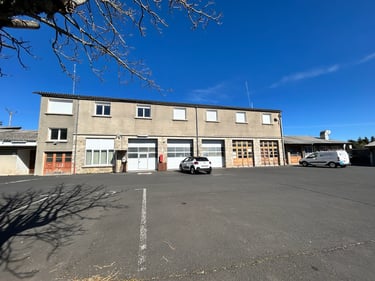
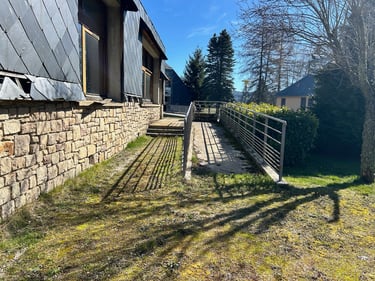
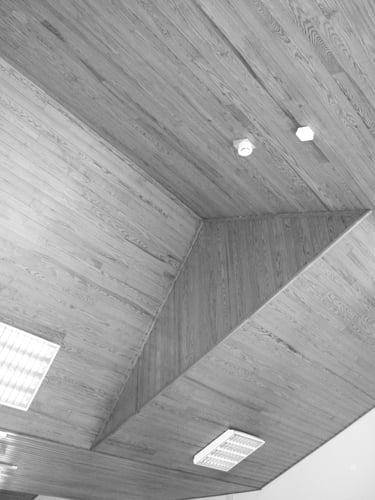
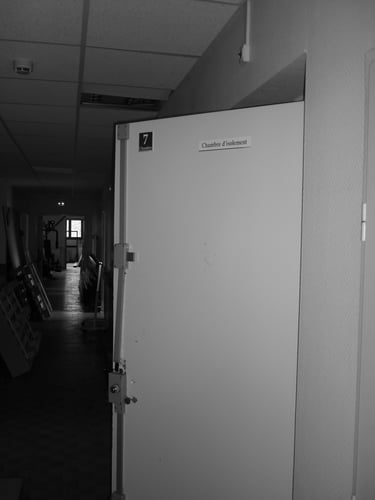
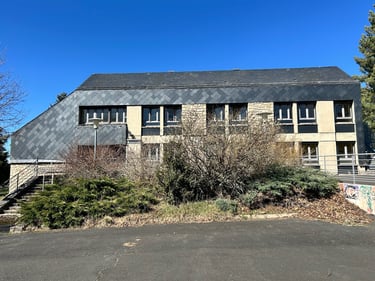
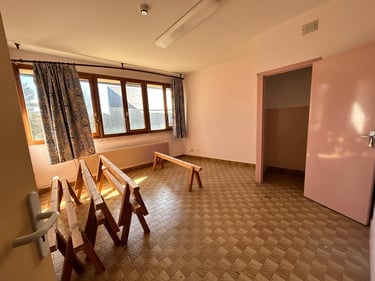
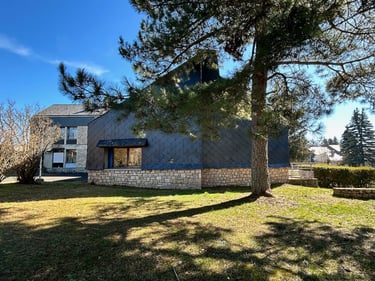
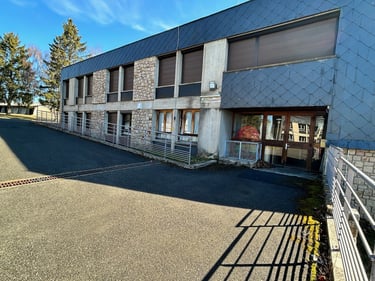
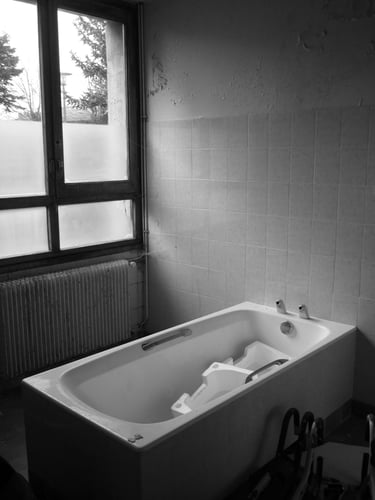
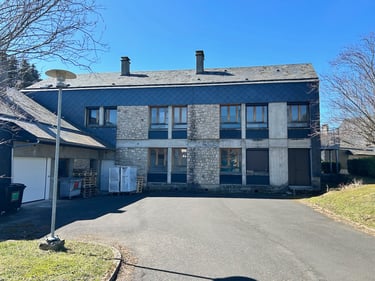
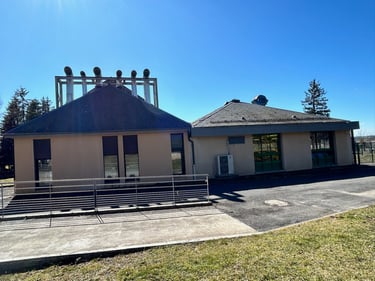
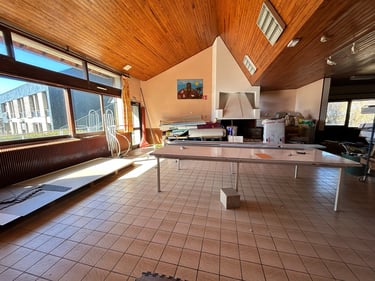
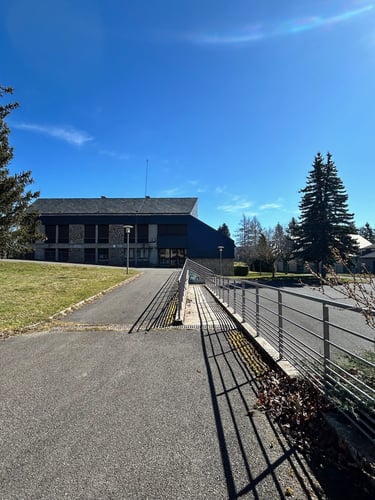
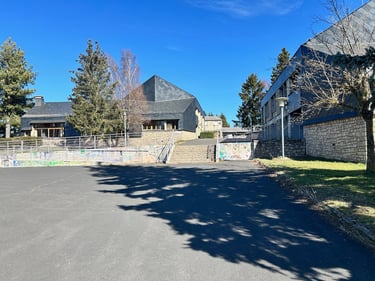
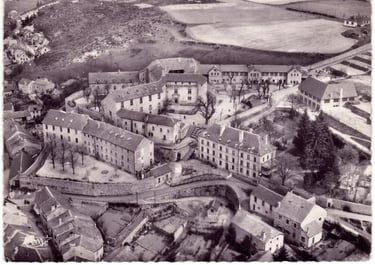
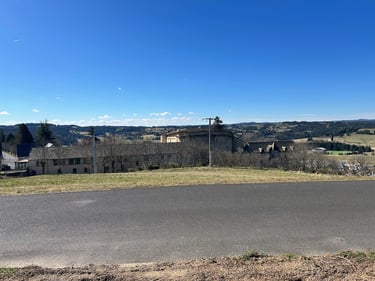
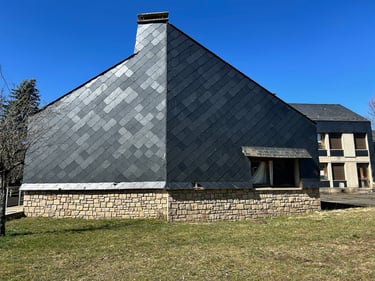
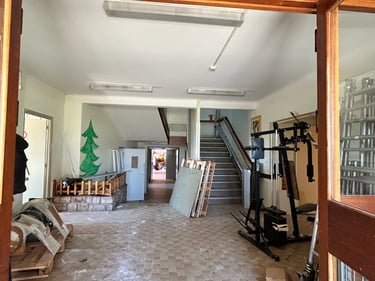


















Rethinking Confinement, Inhabiting Reintegration
The project concerns four modern pavilions built by André Poullain in the late 1960s, at the entrance to the village of Saint-Alban. Standing on a promontory and now little used, they suffer from major thermal deficiencies (lack of insulation, humidity, deteriorated joinery). Two of them are threatened with demolition. The history of the site is strongly marked by the work of François Tosquelles and institutional psychotherapy: open care, removal of barriers between patients and residents, integration through agricultural work. We continue this philosophy by establishing an open prison aimed at reintegration.
The project addresses prison overcrowding (83,681 inmates for 62,570 places in 2024) through an alternative without bars, based on work, training, and connection to the territory (professional networks around Saint-Chély, Mende, and Saint-Flour).
Three pavilions are rehabilitated to provide 54 housing units through three types of intervention:
Extrusion: creation of a patio, north-south cross-ventilated housing.
Extension: addition of a wooden upper floor (6 rooms).
Fusion: merging of two former rooms.
The Maupassant Pavilion hosts common spaces (kitchen, refectory). Insulation is provided with lime-hemp.
The landscape project (inspired by the List agency) enhances views, promotes biodiversity, and integrates sports facilities. A swale along the GR65 marks the entrance to the site.
The Simon Pavilion becomes a training restaurant (90 seats, 15 inmates in training) with a wooden extension. An artisan hall built with reused materials hosts training in wood, stone, and metal. The laundry is relocated and redesigned as a discreet, energy-efficient building. A second phase provides for a biomass boiler.
Finally, a shelter for hikers facing the “cemetery of the mad,” built with reused materials, restores meaning to this place of memory.
Why Saint-Alban?
Located near several penitentiary institutions (notably the Mende remand prison), Saint-Alban is strategically positioned to host this type of facility. It also benefits from a rich local fabric: industries, crafts, and training centers. The open prison would also represent an economic opportunity for the town, attracting new residents (administrative staff, teachers, detainees’ families), while being funded by the State, the region, and the department, without direct impact on the municipal budget.
PROJET REALISER AVEC HATON EVE_CORGIE_DAMIEN
repenser l'enfermement habiter la réinsertion
